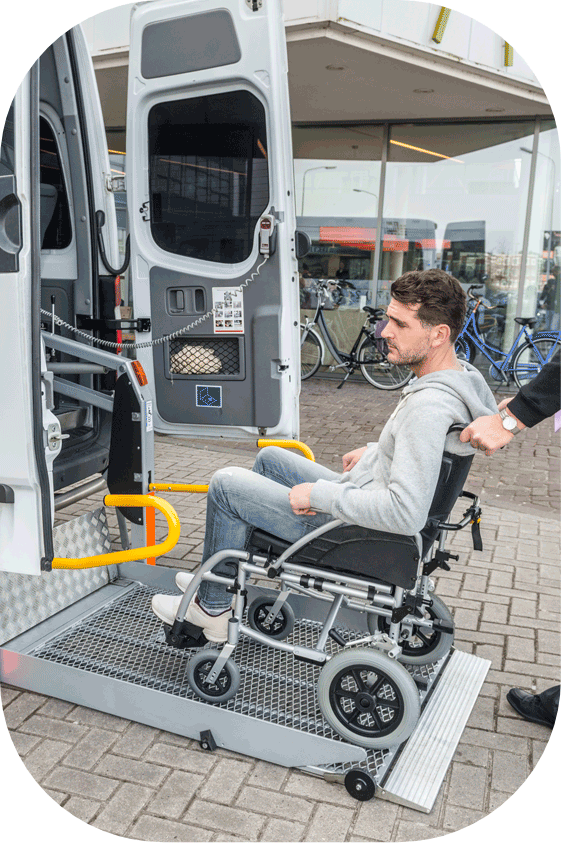Inexpensive and Accessible Medical Transportation Options for each Circumstance
In the world of medical care, the capacity to accessibility clinical services is vital, yet the obstacle of budget-friendly and easily accessible transport can often impede individuals from receiving necessary care. While some might have the methods to safeguard exclusive transport, several face barriers that make it hard to reach medical appointments or facilities. However, the landscape of clinical transport choices is evolving, offering a variety of remedies tailored to various needs and conditions. By checking out customized clinical transport solutions, area transportation programs, ride-sharing and taxi solutions, non-emergency medical transportation, in addition to public transportation and paratransit choices, people can locate avenues that satisfy their particular needs and ensure they obtain the care they require.
Specialized Medical Transport Solutions
Specialized medical transport services play an important role in guaranteeing risk-free and effective transport for people needing specialized care throughout transportation. These services cater to patients with special medical needs, such as those requiring continuous monitoring, customized tools, or medical treatments during transportation. By making use of specially complete cars and trained clinical workers, specialized clinical transportation services ensure that individuals get the necessary care while being transported between healthcare facilities, houses, or other locations.
One secret facet of specific clinical transport services is the concentrate on patient comfort and security. Clinical transport teams are educated to handle different clinical problems and emergencies that may develop during transit, supplying a greater degree of care than standard transport options. Furthermore, these solutions often provide door-to-door help, lessening the stress and discomfort that clients may experience during transfers.
Neighborhood Transportation Programs
Having addressed the crucial role of customized clinical transport solutions in making sure safe and efficient transport for individuals with special medical demands, the focus currently moves to analyzing Area Transport Programs - medical transportation. These programs play an important duty in supplying cost effective and easily accessible transport services for the basic population, consisting of seniors, people with disabilities, and low-income family members who may encounter challenges in accessing typical transportation choices
Area Transportation Programs encompass a series of solutions such as fixed-route buses, paratransit services, volunteer chauffeur programs, and ridesharing efforts. These programs are often funded by neighborhood governments, charitable organizations, or personal business to make certain that people have reliable transport alternatives to get to clinical consultations, grocery store shops, social activities, and other important destinations.
Ride-Sharing and Taxi Providers

One of the essential advantages of ride-sharing and taxi services is their ease of access. These solutions run 24/7, permitting people to take a trip to clinical consultations, drug stores, or health centers any time of the day. In addition, ride-sharing and taxi solutions deal with individuals with mobility obstacles by supplying wheelchair-accessible lorries upon demand.
Furthermore, ride-sharing and taxi services can be specifically valuable for people residing in locations with minimal mass transit alternatives. By linking the space in between home and medical care facilities, these solutions play a critical function in guaranteeing that every person has access to important clinical services.
Non-Emergency Medical Transportation

Non-Emergency Medical Transportation suppliers commonly employ skilled employees that are experienced in assisting people with varying medical requirements. By providing door-to-door solution, Non-Emergency Medical Transportation improves the total availability of healthcare for people that might otherwise battle to attend vital medical appointments.
Public Transportation and Paratransit Options
Public transit and paratransit choices offer important transportation solutions for people with varying wheelchair needs, ensuring accessibility to important destinations such as medical centers and appointments. Public transportation systems, consisting of buses, trains, and trains, provide a cost-effective and extensively available setting of transport for individuals looking for to get to clinical visits. These solutions are particularly valuable for those who might not have accessibility to private automobiles or call for assistance because of flexibility challenges.
Paratransit services cater particularly to people with disabilities who are unable to use standard mass transit. These solutions provide door-to-door transport, suiting people with wheelchairs, walkers, or other movement aids. Paratransit automobiles are furnished with attributes such as mobility device ramps and securement systems to make certain the secure and comfy transport of travelers with differing wheelchair requirements.

Conclusion
